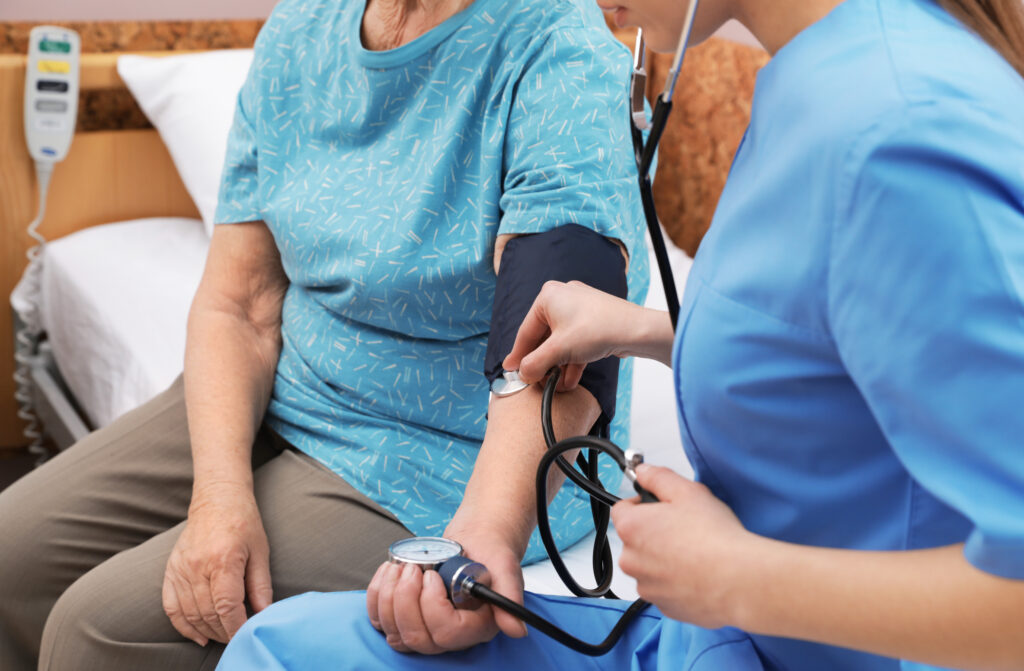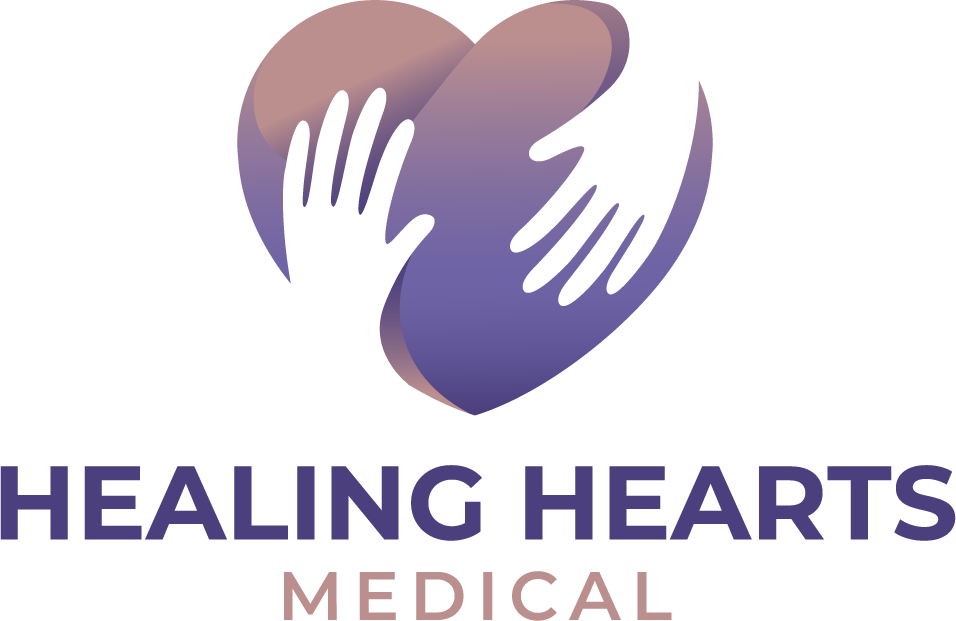Families often begin with standard home care to help aging loved ones remain safe and comfortable at home. Over time, changes in a senior’s physical or cognitive health can reach a point where home care is no longer enough to meet their needs. Skilled nursing offers a higher level of medical care provided by licensed nurses who can manage complex health conditions, medications, and ongoing clinical monitoring.
This guide explains the key signs that your loved one may need skilled nursing instead of traditional home care. You will learn the differences between both types of care, the health situations that require skilled nursing, and how to make a confident and informed decision that prioritizes safety, recovery, and long-term well-being.
What Is the Difference Between Home Care and Skilled Nursing?
Before determining the right level of support, families must understand the difference between non-medical home care and skilled nursing care. Both provide essential assistance, but the scope and expertise vary greatly.
Home Care: Focused on Daily Living Support
Home care is ideal for seniors who need support with everyday activities. Caregivers provide assistance with tasks that help maintain independence, reduce stress, and increase overall comfort. Home care does not include medical services, and caregivers are not licensed to perform clinical procedures.
Common Home Care Services Include:
- Help with bathing, grooming, hygiene, and dressing
- Light housekeeping and simple meal preparation
- Medication reminders (not administration)
- Mobility assistance and fall prevention
- Transportation and escorting to appointments
- Companion care and emotional support
Home care focuses on lifestyle stability, routine, and safety. It does not replace medical supervision.
Skilled Nursing: Advanced Medical Care Delivered at Home
Skilled nursing is required when a loved one needs licensed nursing support to manage complex health conditions. Skilled nurses have medical training and can perform procedures that caregivers are not authorized to handle.
Skilled Nursing Services Include:
- Medication administration and injections
- Wound care, surgical site care, and dressing changes
- IV therapy and tube feeding
- Monitoring of vital signs and clinical symptoms
- Management of chronic conditions such as diabetes or heart disease
- Post-hospitalization care after surgery, stroke, or serious illness
- Respiratory care and catheter management
Skilled nursing is medically necessary for seniors who require ongoing clinical oversight or frequent health evaluations.
Key Signs Your Loved One May Need Skilled Nursing

Not all care situations require skilled nursing, but certain health changes cannot be managed by a traditional home care provider. Below are the most important signs to look for, each explained in detail to help guide your decision.
Complex Medical Needs That Caregivers Cannot Handle
When your loved one begins requiring medical interventions that non-medical aides are not trained to provide, skilled nursing becomes essential.
Many seniors with chronic illnesses eventually reach a point where daily monitoring is needed to keep symptoms stable. A skilled nurse can recognize early warning signs, prevent complications, and coordinate with physicians.
Examples of Complex Needs Requiring Skilled Nursing:
- Daily blood sugar regulation for advanced diabetes
- Oxygen monitoring or respiratory support
- Regular wound assessments for pressure sores or surgical sites
- Tube feeding or catheter care
- Medication administration that involves needles or specialized dosing
When a caregiver says a task is beyond their scope, families should consider a skilled nursing assessment immediately.
Rapid Decline in Physical Abilities
A sudden drop in a senior’s mobility, strength, or balance is a strong indicator that home care may not be enough. Rapid decline increases the risk of falls, emergencies, and hospitalization.
Common Signs of Physical Decline Include:
- Difficulty walking even with assistance
- Trouble transferring from bed to chair
- Unexpected weight loss or muscle weakness
- Shortness of breath during minimal activity
- Severe fatigue during daily routines
Skilled nurses can evaluate the cause of decline, develop care plans with physicians, and monitor progress closely.
Frequent Medical Emergencies or Hospital Visits
Recurring hospital trips or repeated calls to emergency services are signs that your loved one’s health requires medical supervision. Home care alone cannot prevent or manage medical emergencies.
Typical Situations That Indicate Higher Care Needs:
- Repeated falls that result in injury
- Sudden spikes in blood pressure
- Recurring infections
- Problems with medication management
- Dehydration or poor nutrition caused by medical conditions
Skilled nurses help stabilize chronic health issues and reduce hospital readmissions through consistent clinical monitoring.
Difficulty Managing Medications Safely
Medication mismanagement is one of the most dangerous risks for aging adults. Caregivers can provide reminders, but they are not allowed to administer or adjust medication doses.
Seniors who take multiple medications often struggle to keep track of schedules, pill counts, and potential interactions. A skilled nurse can manage medications safely and ensure your loved one takes the correct doses at the correct times.
Warning Signs of Medication Problems Include:
- Missed doses or taking too many pills
- Confusion about instructions
- Visible side effects like dizziness or nausea
- Disorganized pill bottles or inconsistent routines
Skilled nursing eliminates guesswork and provides structured medication oversight.
Signs of Cognitive Decline or Serious Memory Loss
Cognitive impairment affects judgment, safety awareness, and daily functioning. Seniors with memory loss may unintentionally create dangerous situations that require skilled oversight.
Indicators of Cognitive Decline Include:
- Forgetting to eat, hydrate, or take medications
- Wandering away from home
- Leaving appliances on
- Paranoia, confusion, or extreme mood changes
- Difficulty recognizing familiar faces or surroundings
Skilled nurses can create structured care plans and provide medical strategies to stabilize cognitive symptoms.
Recovery After Surgery, Stroke, or Major Illness
Post-hospitalization recovery is one of the most common reasons families choose skilled nursing. After a serious medical event, seniors need professional monitoring to ensure safe recovery.
Skilled Nursing Supports Recovery Through:
- Wound care and dressing changes
- Pain management
- Physical therapy coordination
- Monitoring of vital signs and healing progress
- Prevention of complications, infections, or readmission
Standard home care is not equipped to manage post-surgical risks or medical complications.
Chronic Conditions That Need Continuous Monitoring
Chronic illnesses progress over time and often become more difficult to manage without medical help. Skilled nursing provides regular clinical assessments that keep conditions controlled.
Conditions That Often Require Skilled Nursing:
- Congestive heart failure
- COPD or severe asthma
- Parkinson’s disease
- Cancer-related needs
- Kidney or liver disease
A skilled nurse observes symptoms daily and responds quickly to changes, preventing dangerous health episodes.
Family caregivers often take on more responsibilities than they can handle. When tasks become medically complex or physically demanding, burnout becomes unavoidable.
Skilled nursing reduces the pressure on families by taking over clinical tasks and providing care that requires advanced training. This helps prevent emotional exhaustion and protects the well-being of both the senior and the caregiver.
How to Determine If Skilled Nursing Is the Right Choice

If several signs are present, an evaluation by a skilled nursing provider can give you clarity. Families should consider the following guiding questions:
- Does my loved one require daily medical procedures?
- Are caregivers constantly overwhelmed by health tasks?
- Is my loved one safer with medical supervision?
- Are hospital visits becoming more frequent?
- Is there a noticeable decline in health, memory, or mobility?
A professional nursing assessment can identify risks early and recommend the best level of care.
Comparison Table: Home Care vs Skilled Nursing
| Care Type | Best For | Services Provided | Staff Qualifications |
| Home Care | Daily living support | Bathing, meals, housekeeping, companionship | Trained caregivers (non-medical) |
| Skilled Nursing | Medical care needs | Medication administration, wound care, clinical monitoring | Licensed nurses (RNs, LPNs) |
This comparison shows how skilled nursing fills the gap when home care is no longer enough.
Conclusion
As your loved one’s health needs evolve, recognizing the signs early is crucial. Skilled nursing offers a higher level of support that keeps seniors safe, stable, and well cared for in the comfort of their home. When medical needs become too complex for standard home care, skilled nursing becomes the most appropriate and safest choice for long-term well-being.
For compassionate and professional skilled nursing services, families trust Healing Hearts Medical.
FAQs
1. What makes skilled nursing different from home care?
Skilled nursing includes medical care, performed by licensed professionals, while home care focuses on daily living assistance and non-medical tasks.
2. When should families consider skilled nursing at home?
Families should seek skilled nursing when a senior develops complex medical conditions that require daily monitoring, injections, wound care, or advanced medication management.
3. Can skilled nursing prevent hospital readmissions?
Yes. Skilled nurses monitor symptoms closely, provide medical interventions at home, and help stabilize health to reduce emergency visits.
4. Is skilled nursing only for seniors?
No. Skilled nursing supports individuals of all ages who need ongoing medical care at home, including those recovering from surgery or major illness.
5. How often can skilled nurses visit a patient at home?
Visit frequency depends on medical needs. Skilled nursing can range from daily visits to multiple times per week, depending on the care plan recommended by healthcare professionals.

